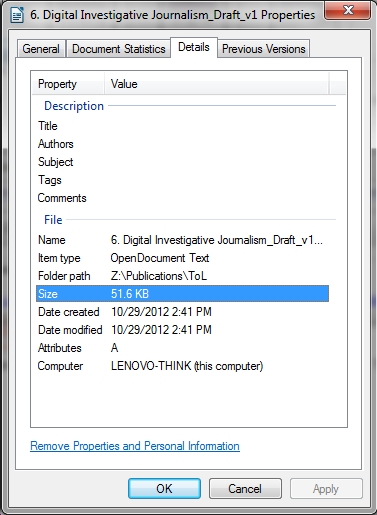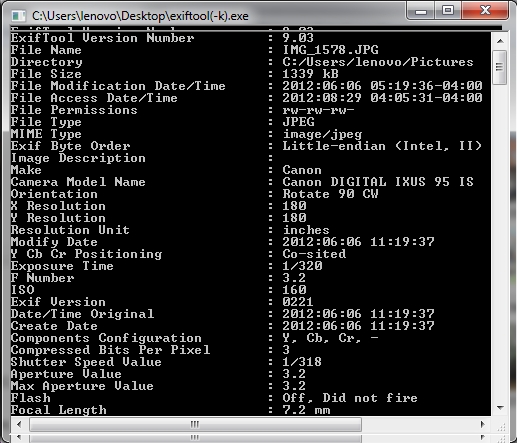This is stored in the file's metadata and it can be accessed with specialized software. Knowing who and when created a particular document may help you authenticate it or identify it as a fake. You should also be aware that this metadata is recorded on the files you create.
Media: Have a read about how the UK went to war over a dossier suggesting that Saddam Hussein had capabilities to deliver long range missiles within 45 minutes. Post factum it was discovered that the intelligence was based on a student's postgraduate thesis. The discovery was made by accessing the document's metadata which the government helpfully posted online http://www.casi.org.uk/discuss/2003/msg00457.html
The easiest way to view the metadata of a document is to select it in Windows Explorer, bring up the menu with a right-click and select 'Properties'. Then go to the 'Details' tab to view this information. Windows also allows you to remove the document's metadata by clicking on 'Remove Properties and Personal Information'.
There are many free and commercial tools that read and allow you to modify the metadata of a document. The majority concentrate on digital images, audio and video data. However some tools can also access, delete or edit a document's metadata.
Exercise: Install and Exiftool by Phil Harvey to see what kind of meta data is collected in your files.

